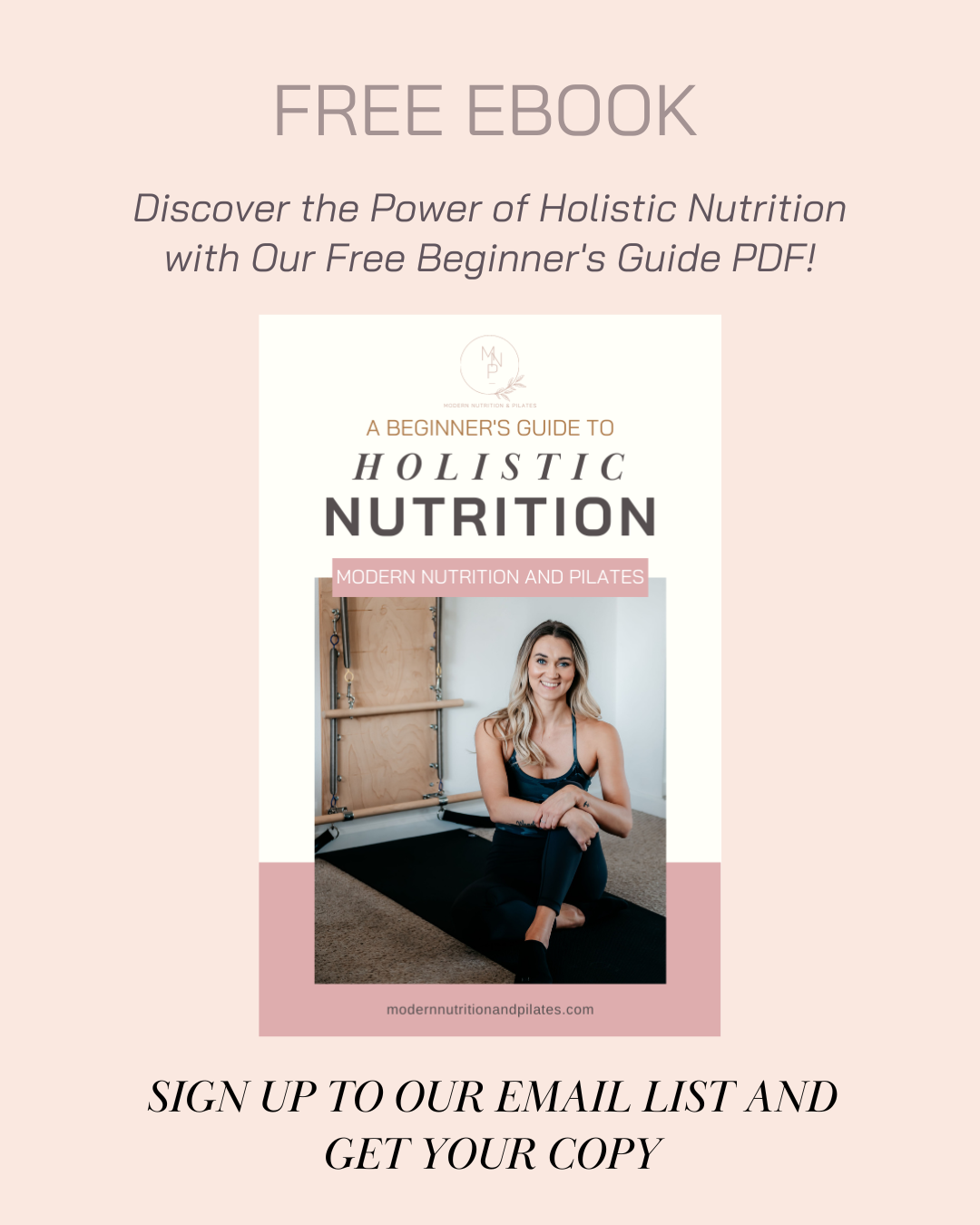Maintaining good mental health has become crucial in our fast-paced world with constant demands and stressors. Pursuing mental well-being has led many to explore holistic approaches, such as meditation, mindfulness, Pilates, and holistic nutrition.
Let’s delve into the profound benefits of these practices and how they can collectively enhance your mental health and overall quality of life.
The Power of Meditation for Mental Health
Meditation Benefits for Mental Health
Meditation is a centuries-old practice that has gained popularity in recent years due to its incredible benefits for mental health. Incorporating meditation into your daily routine can:
Reduce Stress: Meditation techniques, such as mindfulness meditation and mindful movement, reduce stress hormone production, leading to a calmer mind and reduced anxiety.
Improve Emotional Well-Being: Regular meditation promotes emotional stability, helping you manage your emotions better and develop a more positive outlook.
Enhance Focus and Concentration: Meditation exercises the brain's attention center, improving focus, concentration, and cognitive performance.
Better Sleep: Insomnia and sleep disturbances often stem from stress and anxiety. Meditation can help calm your mind, making it easier to fall asleep and enjoy better-quality rest.
Boost Self-Awareness: Meditation encourages self-reflection and self-awareness, fostering personal growth and a deeper mental state understanding.
Mindfulness: A Path to Mental Wellness
Understanding Mindfulness
Mindfulness closely relates to meditation but focuses on the present moment and non-judgmental awareness.
When you incorporate mindfulness practices into your daily life, it can help you:
Reduce Anxiety: Mindfulness techniques, such as deep breathing and body scans, can effectively reduce symptoms of anxiety and panic disorders.
Enhance Resilience: Mindfulness helps build mental resilience by teaching you to accept and manage challenging thoughts and emotions.
Improve Relationships: Mindfulness fosters better communication and empathy, leading to healthier relationships with others.
Manage Depression: Mindfulness-based therapies are effective in managing symptoms of depression and preventing relapse.
Enhance Overall Well-Being: Mindfulness encourages a sense of contentment and well-being by appreciating the beauty of everyday life.
Pilates: A Body-Mind Connection
Pilates and Mental Health Benefits
Pilates is a mind-body exercise system that combines intentional movements with controlled breathing.
While it's often associated with physical fitness, Pilates also has a great impact on mental health:
Stress Reduction: Focusing on controlled breathing and fluid movements in Pilates can help reduce stress levels and promote relaxation.
Improved Posture: Better posture resulting from Pilates can alleviate tension and reduce the risk of stress-related musculoskeletal issues.
Enhanced Body Awareness: Pilates enhances proprioception, your awareness of the position and movement of your body in space, which can improve self-awareness and confidence.
Mental Clarity: The mental concentration required during Pilates exercises can clear your mind, promoting mental clarity and focus.
Boosted Self-Esteem: Achieving physical fitness goals in Pilates can boost self-esteem and self-confidence, positively impacting mental health.
Holistic Nutrition: Fuel for the Mind
Holistic Nutrition and Mental Well-Being
Holistic nutrition is a holistic approach to eating and nourishing the body that recognizes the interconnectedness of mental and physical health.
Proper nutrition can significantly impact your mental well-being:
Balanced Mood: Eating a diet that includes essential nutrients such as vitamins B and omega-3 fatty acids, may help to improve mood and reduce the risk of mood disorders.
Stress Management: A diet filled with antioxidants, whole grains, and leafy greens can help the body manage stress more effectively.
Improved Cognitive Function: Nutrients like antioxidants and healthy fats support brain health, enhancing memory and cognitive function.
Gut-Brain Connection: Holistic nutrition emphasizes gut health, recognizing its role in mental health. There is a growing body of evidence that suggests that a healthy gut microbiome can play a role in mental well-being.
Energy and Vitality: A well-balanced diet provides the energy and vitality needed to tackle daily challenges and maintain a positive mindset.
Integrating Meditation, Mindfulness, Pilates, and Holistic Nutrition
Bringing It All Together
The synergy of meditation, mindfulness, Pilates, and holistic nutrition can create a holistic approach to mental health that yields exceptional results.
Here's how you can integrate these practices into your life:
Create a Daily Routine: Dedicate daily time for meditation and mindfulness exercises to set a positive tone for your day.
Incorporate Pilates: Add Pilates sessions to your weekly exercise regimen, focusing on the mind-body connection.
Mindful Eating: Practice mindful eating by savoring each bite and choosing nutrient-dense foods for better mental health.
Mindful Living: Extend mindfulness to all aspects of your life, from communicating to handling stress.
Seek Professional Guidance: Consider working with experts in these fields, such as meditation instructors, Pilates trainers, therapists, and holistic nutritionists, for personalized guidance.
The benefits of meditation and mindfulness, combined with the physical and mental advantages of Pilates and holistic nutrition, offer a powerful approach to improving your mental health.
When you embrace these practices, you can create a harmonious balance between your mind, body, and spirit, leading to a happier and healthier life.
When you incorporate these mindful practices into your daily routine, you'll soon experience the profound positive impact they can have on your mental well-being.
Don't underestimate the power of holistic approaches; they can improve your life.
Remember that achieving lasting improvements in mental health takes time and persistence.
Make gradual adjustments to your lifestyle that you can maintain in the long run.
Remember, everyone is different, so what works for one person may not work for another. Experiment with different changes and find what works best for you. And most importantly, be patient with yourself and don't give up. With consistent effort, you can achieve a healthier and more balanced mind.


